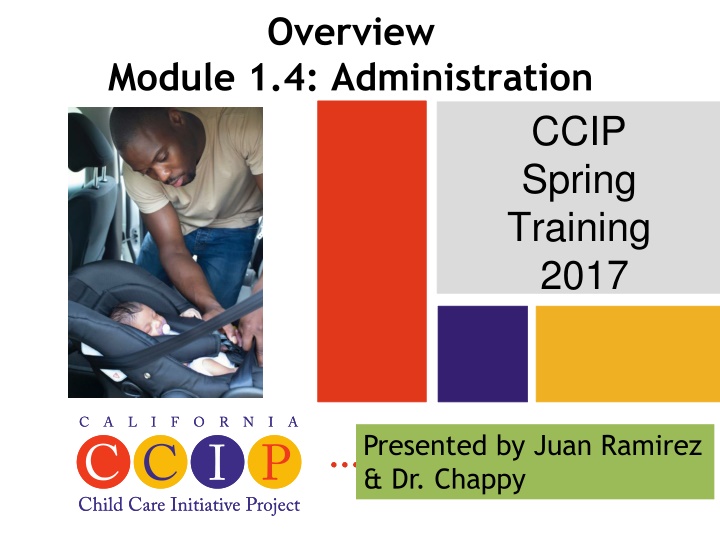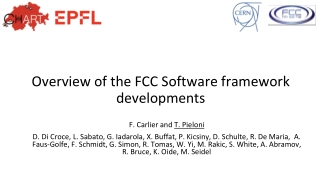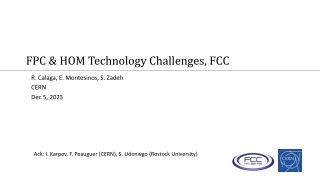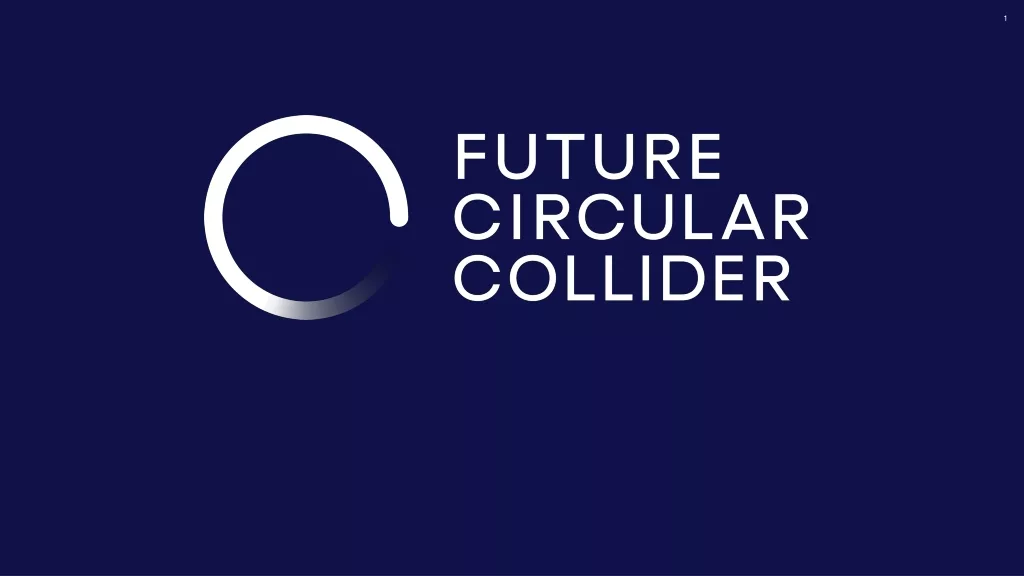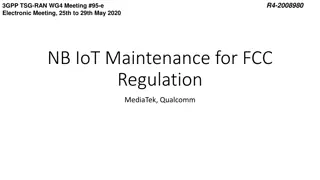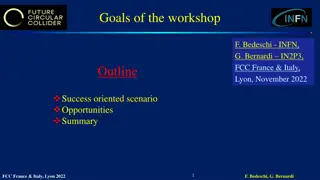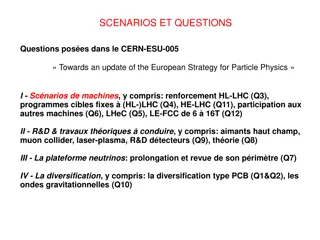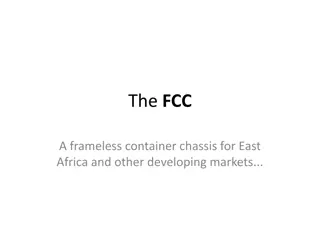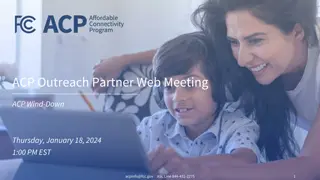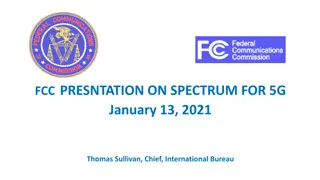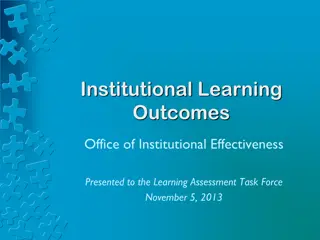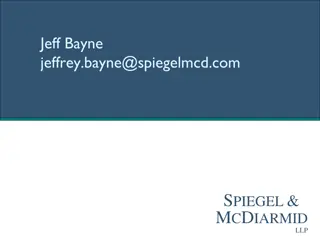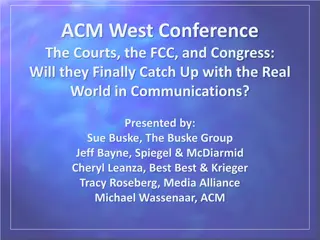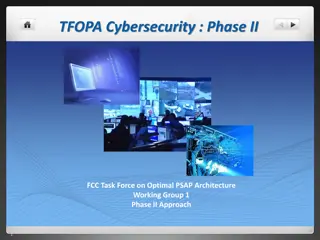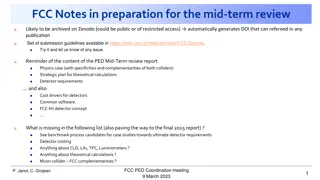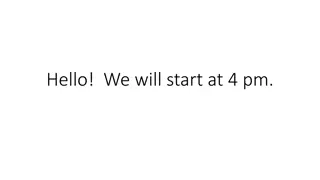Administration Learning Outcomes & Activities in FCC Programs
Learning outcomes in FCC program administration such as program philosophy, policies, record-keeping, and personnel policies. Discover activities focused on reflecting values, drafting statements, self-assessment, and more.
Download Presentation

Please find below an Image/Link to download the presentation.
The content on the website is provided AS IS for your information and personal use only. It may not be sold, licensed, or shared on other websites without obtaining consent from the author.If you encounter any issues during the download, it is possible that the publisher has removed the file from their server.
You are allowed to download the files provided on this website for personal or commercial use, subject to the condition that they are used lawfully. All files are the property of their respective owners.
The content on the website is provided AS IS for your information and personal use only. It may not be sold, licensed, or shared on other websites without obtaining consent from the author.
E N D
Presentation Transcript
Overview Module 1.4: Administration CCIP Spring Training 2017 IMAGE IMAGE Presented by Juan Ramirez & Dr. Chappy INSERT RR LOGO
1.4 Administration Learning Outcomes by section a) Program Philosophy become familiar with what a program statement of philosophy is and be able to explain why it is important to have one. be able to respond to basic questions from families about their program philosophy be able to describe similarities and differences among various philosophical approaches to early care and education. create a philosophy statement that reflects their own values and beliefs
1.4 Administration Learning Outcomes by section b) Program Policies, Contracts & Procedures Understand the policies, contracts, and procedures that should be in place in Family Child Care (FCC) programs Learn about tools and tips for effective program contracts, policies and procedures c) Record-Keeping Understand and be able to implement timely record-keeping that meets the requirements of Community Care Licensing CCL) and federal and state tax codes for Family Child Care (FCC) Homes. Be able to explain recordkeeping requirements to staff, colleagues, and families, as appropriate.
1.4 Administration Learning Outcomes by section d) Personnel Policies Create clear FCC personnel policies applicable to all adults working in the program (e.g. partners, assistants, substitutes) and inform new staff about policies and procedures, as well. Communicate proactively with families, children (in a developmentally appropriate manner), and all staff in the FCC about personnel changes
1.4:Administration activities list a) Program Philosophy Reflect on Our Values, Beliefs, Hopes Comparing Philosophies of Care Drafting a philosophy statement b) Program Policies, Contracts & Procedures Model Standards Self-Assessment and Action Planning for Your FCC Program Taking a Deeper Dive into Policies for Your FCC Program
1.4:Administration activities list (continued) c) Record-Keeping Record-Keeping Brainstorm Finding Common Licensing Violations Related to Record-Keeping Fiscal Record-Keeping Strategies and Tool Brainstorm d) Personnel Policy Personnel Policy Deep Dive
1.4a. Program Philosophy Key Points Having a program philosophy is critical and enables your program to thrive. A program philosophy illustrates your vision, purpose, and intentions. It defines what you believe about what caring for children should look like; what your role in the care and early education of children is; and the quality of the relationships you want to have with the families enrolled in your program.
1.4a. Program Philosophy Key Points Your beliefsprovide the foundation for your philosophy of caregiving and teaching children. Because beliefs are grounded in values, they have a strong impact on shaping behavior. Your valuesalso affect your reactions when confronted with ethical dilemmas in your work. Your role as leader of your program is to ensure that the values and beliefs of the adults on your team are consistent with the core values and mission of your program.
1.4a. Program Philosophy Key Points cont. The expectations you have for the children in your program, including how you think children learn best and how the activities you offer benefit every child regardless of learning style should be included in your program philosophy statement. Your program philosophy should describe the HOW you think the needs of children of different ages and developmental levels are met.
Group look up/data dive activity Pull out your smart phone, tablet or computer!
Share your Definitions! HOW did you define: 1.BELIEFS? 2.VALUES? 3.MISSION? 4.ETHICS and ETHICAL DILEMMA 5.EXPECTATIONS? 6.PURPOSE? 7.INTENTION?
Feedback? What worked? What was challenging about this activity? IMAGE
Feedback IMAGE
Planning Activity Spring Training 2017 IMAGE
Activities Icebreakers Opening/closing Energizers Individual Reflective thinking Journal Silent read Partner Brainstorm Pair & Share Handout completion Small group Learning games Debates/Discussions Whole group Lectures Panels Facilitator-led discussion Whole group exercises Role play View DVD Read-a-loud Walk-about
Directions: In small groups or individually create a training using the template provided. Utilize the resources provided to: Module 1.4, 4.1, 4.5, and 5.1 in your packet The experts in the room- each other Smartphones
